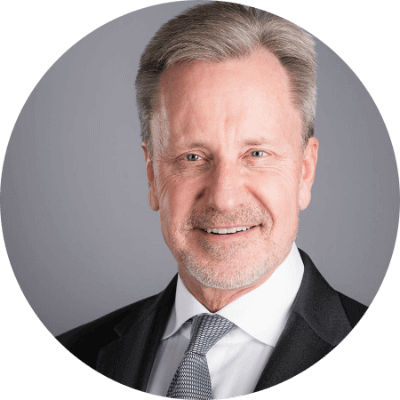
CEO selection is more complex for family companies. Consider these four options when choosing your next CEO.
Few decisions are as significant to the long-term success of a family-owned business, and the financial wellbeing of the family owners, as the selection of the right CEO.
CEO selection is more complex for family companies than for non-family companies because deeply-rooted family values and dynamics may require the CEO to have a special skill set. It is fundamental that the CEO have the right experience and capabilities for the job. Competencies aside, having a CEO who understands and supports family ownership, as well as the values and culture of the company, is vital—and worth spending extra time to find.
Rethink Your Narrow Candidate Pool
When family businesses embark on a search for their next CEO, they sometimes, unknowingly, use a limiting viewpoint and set of assumptions that restrict the candidates they consider.
For example, below are common statements that we hear from business families who invite us to help them with their CEO succession plan:
“The next CEO needs to be a family member who currently works in the family business.”
“The next CEO should be the son or daughter of the current CEO.”
“The next CEO ought to be one of our senior executives as a reward for his/her loyalty to the family all these years.”
These and other presumptions prematurely narrow the pool of viable CEO candidates. They also overlook the importance of critically evaluating the current and future needs of the company as a first step in any CEO succession process.
Four CEO Options for Family Companies
Family businesses have more CEO options than they often realize. It is valuable to widen the lens and consider these options at the start of your succession conversation.
Specifically, family companies have four choices to consider for CEO candidates: Family Insider, Family Outsider, Non-Family Insider, and Non-Family Outsider.
Four CEO Profiles for Family Companies


During our study of CEO selection in family businesses at the Cambridge Institute for Family Enterprise, we analyzed numerous examples of CEO profiles around the world. Four exemplary CEOs are described here as illustrations.
Examples of Exemplary CEOs

Assessment of the Four CEO-Types
Each CEO-type brings benefits by virtue of its position in the matrix. For example, Insiders have a deep understanding of the way things work in the organization. Outsiders have a fresh perspective. Family members have a long-term commitment. Non-family members have greater objectivity.
Each CEO-type also has potential drawbacks. Insiders may be too tied to the way we do things when change is needed. Outsiders are untested in our environment. Family members may be biased. Non-family members may not embrace our values enough.
Each CEO profile can be successful in the right context, but not in every context. It is important to understand the strengths and vulnerabilities of these four CEO-types and to evaluate whether they are the right fit for your situation.
The Family Insider
Family Insiders—like Cargill’s Whitney MacMillan (4th generation) and Axel Dumas of Hermès (6th generation)—are the traditional and preferred choice of CEO successor in most family companies.
They have the backing of the owners and bring to the job a deep understanding of the company. Family Insiders understand how things get done in the organization and how decisions are made among the owners. They are more likely to possess a detailed knowledge of the company’s operations, the right core values, and long-standing relationships with key stakeholders inside and outside the business. They tend to demonstrate a passionate commitment to the longevity of the business.
But Family Insiders are not always the right choice, especially if they are not yet ready to lead when the CEO position is vacant. Family Insiders are generally closely tied to the traditional methods of running the company and may struggle to make the necessary changes to keep pace with a quickly-evolving industry. Significant change often requires letting some loyal people go and departing from some of the company’s long-standing practices. In the fast-changing world today, such changes are important. Family Insiders may be reluctant to change in favor of being loyal or remaining connected to tradition.
- Consider a Family Insider especially when: the family business needs to focus on continuity of culture and practices.
The Family Outsider
Family Outsiders typically embody the right core values within the company, but do not bring the operational knowledge of the family business that Family Insiders do. Instead, Family Outsiders bring their external knowledge and experience to the company.
Family Outsiders can have varied backgrounds outside of the family business prior to joining. They can be entrepreneurs like Alexandre Birman (2nd generation), whose startup was so successful that it added hundreds of millions of dollars in revenue to his family’s shoe company, Arezzo. Or they can be organization builders like Tony Simmons (5th generation) who built a manufacturing company for Manitowoc Cranes as an Outsider CEO before buying that company and selling it, then being recruited by his family’s fifth generation hot sauce (Tabasco) maker, McIlhenny Company.
Family Outsiders’ external experience can lend them greater credibility among the management and staff. These CEOs respect the strengths of the family and company, but are aggressive change agents who can help the company keep pace in dynamic industries.
However, Family Outsiders may find themselves caught up in family politics that invade the company. They may also be inclined to change things too fast.
- Consider a Family Outsider especially when: change is needed but you don’t want to disrupt the fundamental culture of your company.
The Non-Family Insider
Non-Family Insiders understand the company’s internal systems and respect its culture and values. These executives are generally perceived as more objective and politically fair than family member CEOs. They are often skillful developers of next generation talent like Patrick Thomas at Hermès who helped to prepare his successor, Axel Dumas (6th generation).
But Non-Family Insiders can have the same difficulty changing the company as Family Insiders if they are too tied to existing ways of doing things.
When family businesses transition to their first non-family CEO, they often choose a Non-Family Insider. In planning his own succession, Family Insider Whitney MacMillan, together with the Cargill board, chose a Non-Family Insider, Warren Staley, to succeed him. Ever since, the company has developed effective Non-Family Insiders (CEOs Greg Page and David MacLennan).
- Consider a Non-Family Insider especially when: stability is needed and no family member is ready to be CEO.
The Non-Family Outsider
Non-Family Outsiders typically possess valuable external experience within the industry that is well-suited to address the challenges currently confronting the company. These CEOs are more likely to depart from unsuccessful practices than their Insider counterparts, and are more willing to make the required changes to stay competitive.
In 2004, after Lego experienced its first string of declines in profit and sales in almost 70 years, the board brought in its first Non-Family Outsider CEO, Jorgen Vig Knudstorp. He not only possessed the capabilities to turn the company around, but he embarked on a learning journey to deeply understand the company, its values, customers, employees, and the Kristiansen family. Knudstorp’s respect for the culture and values that made Lego successful were integrated into his turnaround strategy, which is considered to be one of the most successful in corporate history. Lego was the world’s most profitable toy company by 2016.
Knudstorp respected the strengths, roots, and culture of the company; not all Non-Family Outsiders do. In fact, some have disdain for the ownership, values, and fundamental orientations of family companies—and these leaders usually fail, rather spectacularly.
Although Non-Family Outsiders often lack deep knowledge of the company’s culture and operations, these CEOs can devote time to learn as Knudstorp did. They can also serve as an effective bridge to the next generation of family leadership.
- Consider a Non-Family Outsider especially when: a turnaround or fundamental reorientation of the company is needed.
Summary of Benefits and Drawbacks of the Four CEO-Types

Recommendations for Selecting the Right CEO Profile
In your succession plans, initially consider all four options. Don’t automatically presume that one type or another is right.
Resist the desire to clone the last CEO. The CEO profile you need today may be different than the one you needed a decade ago, or the one you will need a decade from now. Choose from these four profiles based on where your family business or family office needs to go next.
Take the time to evaluate the benefits and drawbacks of each CEO-type for your family business. Assess why each profile could either succeed or fail at this stage in your family business’ evolution.
Ask these six questions as you determine which CEO profile might best fit your family business:
- Where is your company in its life cycle?
- What are the primary challenges currently confronting your business? What are the main anticipated challenges in the near future?
- What are your family and company visions for the next five years?
- What type of change, if any, is required for your family company to become or remain competitive in its industry(ies)?
- What are the two or three critical leadership skills desired in a CEO?
- Are there family members currently working in the business who are interested in and capable of leading the company?
Whatever type of CEO you ultimately choose, the CEO must appreciate your company’s culture, respect its strengths, and be good at preserving key relationships. But he/she should also be able to move the organization away from activities and practices that are holding it back toward those that can grow the assets of the company.

John A. Davis is a globally recognized pioneer and authority on family enterprise, family wealth, and the family office. He is a researcher, educator, author, architect of the field’s most impactful conceptual frameworks, and advisor to leading families around the world. He leads the family enterprise programs at MIT Sloan. To follow his writing and speaking, visit johndavis.com and twitter @ProfJohnDavis.



 CEO Succession in the Family Business: A Better Plan for Success
CEO Succession in the Family Business: A Better Plan for Success  Principles of Founder Succession
Principles of Founder Succession  Business Strategy
Business Strategy